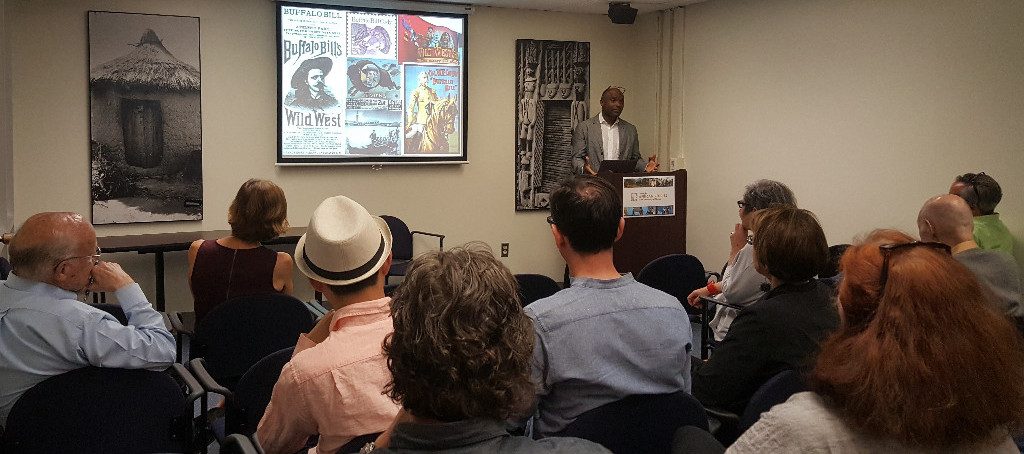
On Friday, March 31st, Ch. Didier Gondola gave a Baraza presentation titled, “Buffalo Bill in Kinshasa: Westerns, Masculinity, and Violence in the Tropics.” Dr. Gondola is Professor of History at Indiana University – Purdue University at Indianapolis (IUPUI). The talk focused on Dr. Gondola’s new book, “Tropical Cowboys: Westerns, Violence, and Masculinity in Kinshasa” (Indiana University Press, 2016).
With a focus on Congo-Kinshasa in the 1950’s, the talk began reacquainting the audience to “Buffalo Bill” Cody, a figure in American Western history who lived from 1846 to 1917. A scout, entertainer, buffalo hunter, performer, etc., Buffalo Bill was widely known, and depicted in movies, as an American cowboy. At his funeral then President Theodore Roosevelt eulogized Buffalo Bill as someone who opened the Western US to civilization and embodied traits of courage, strength, and others vital to the nation.
In the 1950’s, Buffalo Bill’s image arrived in Congo-Kinshasa via Westerns (films). Still under Belgian rule, paternalism was a dominant theme where the African man was depicted as a child in need of supervision and colonization was the white man’s burden. The missionary censorship boards which approved of American Western movies did so in part, Gondola argues, because King Leopold II and Buffalo Bill were understood as kindred spirits (i.e. both ‘tamed the wild’ and propagated Western civilization). Still, Buffalo Bill and Westerns became incredibly popular, less so for their simple story lines and more so for the action and imagery of the films. Further, to some extent local viewers identified with Buffalo Bill and cowboys (the winners) against Native Americans (the losers) despite the parallels between cowboy and colonial paternal cultures. Further, directly related to the popularity of Westerns, networks of neighborhood gangs of ‘bills’ developed in Kinshasa. Bills developed their own language, Indoubill, largely to conceal activities dealing with drug consumption and girls from the colonial authorities. Through this incredibly rich history of Bills, Dr. Gondola’s research offers us a purview into youth culture, changes in the understanding of masculinity, local sources of rebellion against colonial rule, and performative violence that characterized Kinshasa in the 1950’s.